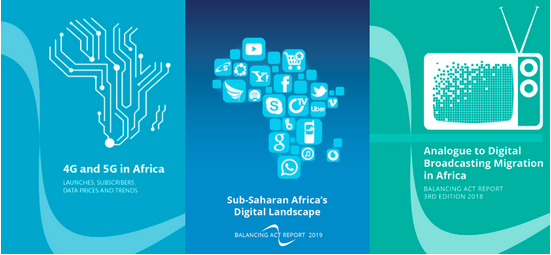Long-standing Beninois ISP Isocel Telecom has obtained funding to roll-out its FTTH service to the Greater Cotonou area. Russell Southwood talks to Isocel Telecom’s CEO Robert Aouad.
In its first phase of its FTTH roll-out, Isocel planned to reach between 500-1,000 premises and it has almost passed 800. There are currently 500 customers using the service. It has laid 90 kilometres of fibre in Cotonou’s commercial district and a number of high-end residential areas. The numbers may sound modest but they are the foundation for phase 2 of its roll-out.
The company’s goal is to acquire at least 10,000 subscribers over the next three to five years. To meet this objective, it has raised 6 million euros from France’s Public Investment Bank (Bpifrance). After deducting export insurance charges, 5.25 million euros will be available for the deployment.
This funding will enable the company to reach an annual turnover of more than 10 million euros, 60% of which will linked to the supply of capacity to telecom operators in neighboring landlocked countries in the region and to extend its fiber optic network throughout the Greater Cotonou agglomeration (passing 30,000 to 40,000 homes).
The expansion will start in 2021, with the company placing the order for the equipment this quarter. Isocel Telecom has opted to sling the fibre on power line poles to reduce costs and the time taken to deploy the network. To become a subscriber will cost less than 50,000 CFA francs (around 70 euros), and offers will start at 25 euros for a speed of 25 megabits per second.
Isocel, which obtained authorization for deployment after the enactment of the new telecommunications code in 2018, is one of only two FTTH providers in the country, the other being the newly merged state entity, SBIN. (The merged entity has closed down its mobile arm, leaving only two players, Moov and MTN.)
”The Government is meant to be finding a private operator to run it for the state on a management contract. In terms of FTTH, it’s not in the mindset of the regulator to let MNOs enter the market for now. It will be state capital funding SBIN’s expansion and there may not be enough revenues so it’s quite complicated for them.”
The big news is that Moov’s parent Maroc Telecom (owned by Etisalast) is to lay an international cable to connect all of its West and Central African opcos: Benin, Gabon, Ivory Coast and Togo. It has two other operations (in Central African Republic and Niger): the former currently has no fibre connection from Libreville and the latter can be reached via Cotonou.
In Brief
Teraco builds Africa’s largest data centre: Africa’s largest interconnection hub and vendor-neutral data centre provider has announced that construction has commenced on a new hyperscale data centre with 38 megawatts (MW) of critical power load in Ekurhuleni, east of Johannesburg, South Africa. The facility, known as JB4, is scheduled for completion in Q1 2022 and as a stand-alone building, will be the largest data centre in Africa.
The Raxio Group, a pan-African data centre developer and operator, has officially secured land at the ICT Park, in the outskirts of Addis Ababa, through its fully-owned subsidiary in Ethiopia, Raxio Data Centre where they will construct the country’s first private uptime certified Tier III colocation data centre. Set to be commissioned in Q3 2021, Raxio Ethiopia will offer its customers an optimized environment for their IT equipment in a state of the art, modular facility, fully equipped with industry best in technology, security, AC/DC power compatibility and redundancy. Customers will be able to cross connect with local and international carriers and other customers in specially-designed meet-me rooms, making Raxio Ethiopia an integral backbone to the country’s digital economy.
Nokia supplies 5G to Vodacom SA: Nokia announced that it is enabling ultra-fast 5G services for Vodacom South Africa’s customers by deploying its 5G radio, core and fixed network solutions across Vodacom’s network.
Co-creationHub (CcHUB) has announced its acquisition of eLimu, a leading EdTech firm and digital educational content provider in East Africa. The goal of the acquisition is to transform eLimu into the digital education platform of the company. eLimu currently has an existing audience of approximately 500,000 teachers and learners.
Ghanaian Government buys Airtel Ghana: Bharti Airtel’s board has announced that it is in the advanced stages of concluding an agreement with the Ghanaian government to transfer mobile operator AirtelTigo to the state as a going concern. The proposed deal would result in the government acquiring 100% of shares of Airtel Ghana, along with all its customers, assets and agreed liabilities, Bharti Airtel said in a statement. No financial details of the sale were disclosed, but Airtel said it is taking an impairment charge of INR1.841 billion (USD24.9 million) on its holding in the operator.
A Ugandan parliamentary budget committee has recommended that the government should clear a UGX45.6 billion (USD12.2 million) debt owed by state-owned Uganda Telecom Ltd (UTL). The Monitor reports that UTL owes the sum to Eastern and Southern Trade and Development Bank (TDB) as part of a wider UGX2.4 trillion financing arrangement. The committee says clearing the debt would help shore up the struggling telco’s finances.
Source: https://www.balancingact-africa.com/news/telecoms-en/47531
